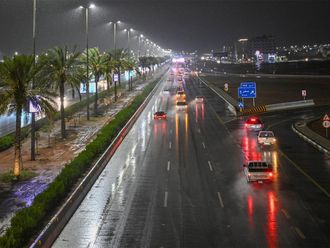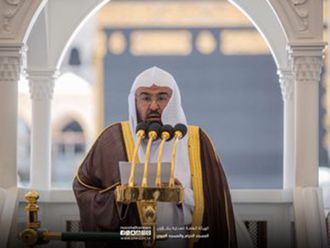
Dubai: Approximately 2.1 billion people around the globe do not have access to clean drinking water and that number keeps increasing by the day, as per a report by the World Health Organisation.
Ninety-seven per cent of the earth’s water is sea water. The other 3 per cent of fresh water continues to dwindle. Water desalination — the process of removing dissolved salts from water — is the way forward.
The GCC has always been pre-occupied by the economic impact of another liquid that comes out of the ground — oil, which has long been the foundation of the Middle Eastern regional economies.
Impressive cities
The revenues generated have built impressive cities, driven investment and modernisation, and supported development across the region. However, if the GCC is to continue to grow and progress, water is the liquid to worry about — and it is far more important to the future of the region.
Water remains a considerable challenge for the Middle East. World Bank data shows more than half of people in the Mena region live under conditions of ‘water stress’ — when water demand outstrips supply. Compounding this issue is the expectation that water availability per capita will halve by 2050, due to rising populations, a trend likely to be worsened by climate change.
Population needs
“Producing enough water to support the Middle East’s growing population needs huge investment. For more than 50 years, many regional markets have relied on desalination. Saudi Arabia [is] planning to invest billions by 2020 to expand its desalination capacity, and 70 per cent of the world’s desalination capacity is in the Middle East,” said Roberto De Diego Arozamena, chief executive officer of Abdul Latif Jameel Energy.
Fostering partnerships between industry and academia is crucial to help translate pioneering research into practical solutions for communities around the world. “Businesses need to work to find new and innovative solutions to tackle water scarcity. This must include a significant focus on improving efficiency in water use, as well as a drive to develop more sustainable desalination processes,” continued Arozamena.
Cross-border water grid
Governments, too, must be active in confronting a shared and pressing problem. The Middle East is already making good progress in this area. At a regional level, the GCC is exploring the possibility of a cross-border water grid to enable water to be moved from areas of relative oversupply to those facing shortages. Sustainable ‘smart’ cities, at the heart of development strategies across the region, will also help communities understand and manage water consumption like never before.
It is imperative that further rapid progress is made. By meeting the water challenge head on, and encouraging investment, innovation and partnerships across society, the GCC can put itself at the forefront of a fast-growing, innovative industry that will become increasingly vital to global development in the coming years.












